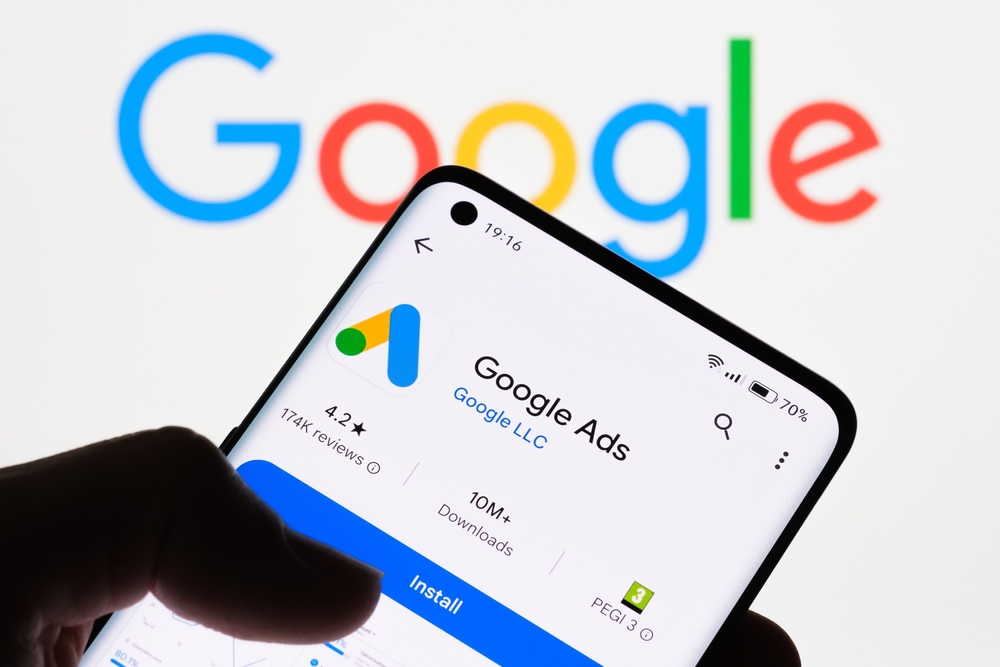Introduction
Google Ads remains a cornerstone of search engine marketing for businesses seeking to reach the right audiences at precisely the right moments. Yet even seasoned digital marketers often face obstacles in optimizing ad targeting, finding the ideal keyword strategy, and translating clicks into conversions. AI-powered solutions offer a powerful advantage in navigating these challenges, transforming how marketers approach search engine marketing and conversion optimization.
By blending advanced analytics with a data-driven approach, AI helps marketers enhance performance metrics, drive higher ROI, and streamline campaign management efforts. This comprehensive guide explores the strategic value of Google Ads and reveals how artificial intelligence can elevate your campaigns to the next level.
1. The Strategic Value of Google Ads in Search Marketing
Google Ads provides unparalleled access to audiences actively searching for products and services. In an environment where customer attention is increasingly fragmented, ranking prominently in search results can significantly impact visibility and conversions.
Precision in Targeting
Google Ads allows marketers to deliver messages based on location, device, and previous online behavior. For digital marketers managing e-commerce campaigns, this degree of specificity is essential in creating ads that resonate with different audience segments and shopping intentions.
Budget Flexibility
Businesses can set and adjust budgets to reflect real-time performance metrics. This is especially valuable when certain campaigns outperform others, helping PPC specialists maximize returns without wasting resources on underperforming ads.
Real-time Insights
Google’s platform provides instant feedback on how each ad performs, including clicks, impressions, and cost per click. This constant flow of data allows marketers to pivot nimbly and reallocate resources to the best-performing campaigns, creating a cycle of continuous improvement.
2. How AI Transforms Google Ads Strategy
AI technology elevates traditional optimization by quickly analyzing vast volumes of user data, keyword performance, and competitor trends. While standard approaches can accumulate valuable data, extracting strategic insights requires advanced processing power and machine learning capabilities that only AI can deliver efficiently.
Data Analysis at Scale
AI systems can review enormous data sets, including search volume, past campaign results, and user behaviors, in a fraction of the time it would take human analysts. This quick analysis shortens the cycle between gathering information and taking action, giving marketers a competitive edge.
Adaptive Keyword Strategy
Market dynamics and search queries shift minute by minute. An AI-driven approach can identify trending phrases, modify bids in real time, and uncover gaps in competitor strategies, all without constant manual oversight. This adaptability ensures campaigns remain relevant despite changing market conditions.
Predictive Performance Modeling
By analyzing historical data patterns, AI can estimate future trends, helping marketers plan budgets and bids with greater accuracy. This predictive capability makes it easier to manage fluctuations in demand and competition, reducing wasted ad spend during market shifts.
Automated Creative Optimization
AI can assist in drafting and testing high-quality ad copy that remains consistent with brand messaging while improving performance. This is particularly valuable for marketing teams seeking to maintain unified communication across numerous campaigns while continuously improving results.
3. Implementing Effective Google Ads Campaigns
Regardless of company size or industry, successful search engine marketing begins with a strategy that aligns with broader marketing objectives. Below are proven guidelines that help shape a well-rounded approach to Google Ads campaigns.
Focus on Intent-driven Keywords
When selecting keywords, concentrate on those that match user intent rather than simply banking on high search volumes. Generic terms may attract clicks but will not necessarily lead to qualified leads or conversions. PPC specialists should categorize keywords by funnel stage to ensure alignment with customer journey phases.
Create Tightly Themed Ad Groups
Grouping similar keywords into themed ad sets keeps copy relevant to the search query. This relevance often improves Quality Score, lowering cost per click and improving overall ad position. For e-commerce brands, product-specific ad groups typically outperform broader categories.
Refine Ad Targeting with Audience Signals
Google’s extensive user data can be combined with demographic filters like age, location, and interests. Layering these insights on top of your keyword strategy boosts relevance and conversion potential. AI tools can help identify the most valuable audience segments based on historical performance data.
Implement Regular Performance Reviews
Monitoring clicks, impressions, and conversions reveals areas where ads might be underperforming, allowing marketers to make targeted adjustments. Over time, this iterative approach refines campaigns for maximum efficiency. Establishing a consistent review schedule helps maintain campaign health.
Optimize Landing Pages for Conversion
The best ad in the world loses impact if its landing page is slow or irrelevant. Simple navigation, clear calls to action, and concise copy help nurture visitors toward desired actions. Page load speed, mobile responsiveness, and message match between ad and landing page are critical factors in conversion optimization.
4. AI-Driven Enhancements for Google Ads Performance
AI can transform the entire cycle of running Google Ads, from early campaign research to final outcome measurement. Rather than simply accelerating existing processes, AI technology adds a strategic layer of insight that can dramatically improve campaign performance.
Real-time Bid Adjustments
Machine learning continuously analyzes market conditions, competitor bids, and campaign performance to optimize bids dynamically. This continuous optimization helps protect budgets while increasing conversions by ensuring you’re bidding appropriately for each auction.
Advanced Audience Segmentation
AI can identify and segment audiences based on shared characteristics or behaviors, pinpointing the best prospects for an ad campaign. This goes beyond basic demographic filters to create highly nuanced audience targets based on behavioral patterns and purchase intent signals.
Campaign Fatigue Detection
Over time, users often develop ad blindness when repeatedly exposed to the same creative. AI can identify these dips in effectiveness and signal when to refresh ad copy or images to re-energize performance before metrics significantly decline.
Comprehensive Performance Analytics
By aggregating performance metrics and simplifying data analysis, AI platforms offer a unified view of campaign effectiveness across multiple dimensions. Actionable insights and improvement suggestions free up marketers to focus on higher-level strategy rather than manual data analysis.
5. Advanced Conversion Optimization Techniques
Although generating traffic is essential, traffic alone does not guarantee conversions. Evaluating and optimizing each step of the consumer journey can make the difference between a bounce and a profitable action, especially for e-commerce brands focused on ROI.
Dynamic Landing Page Testing
AI excels at multivariate testing, adjusting page layout, wording, and visuals to find the optimal combination for maximum conversions. This systematic approach to testing eliminates guesswork and accelerates the optimization process.
Behavioral Analysis and Friction Identification
By examining dwell times, click patterns, and exit points, AI can uncover hidden friction in your conversion funnel. Eliminating these roadblocks makes the purchase or signup process smoother, reducing abandonment rates and improving overall campaign performance.
Personalized Remarketing Strategies
Through pattern recognition, AI identifies the actions users took (or did not take) and enables highly targeted remarketing campaigns. For instance, someone who abandoned a cart might receive a limited-time discount or a reminder with related products, significantly improving conversion rates.
Predictive ROI Modeling
AI can analyze how various changes in budget or strategy might affect future revenue. This predictive capability helps decision-makers focus on moves with high potential for long-term profitability rather than short-term metrics that may not translate to business results.
6. Building a Data-Driven Google Ads Culture
Adopting AI in search marketing demands more than technology implementation. It involves establishing processes, developing skill sets, and embracing a mindset that values data-informed decision making and continuous improvement.
Regular Campaign Audits
Marketing teams benefit from periodic comprehensive reviews to assess keyword strategy, ad targeting effectiveness, and new AI capabilities. These audits ensure that outdated approaches or inefficient processes do not limit growth potential.
Team Skill Development
Integrating AI-based tools often requires training current staff to interpret complex data sets and leverage machine learning insights effectively. Investing in these skill sets helps marketing teams exploit the full potential of AI-enhanced Google Ads campaigns.
Testing and Experimentation Framework
Forward-thinking marketers encourage a culture of systematic testing and data-driven learning. Treating each campaign as an opportunity to gather insights fosters innovation and prevents complacency. Establishing a formal testing framework ensures consistent evaluation of new approaches.
Cross-functional Collaboration
Breaking down silos between marketing, sales, and product teams ensures that Google Ads campaigns align with broader business objectives. This collaborative approach improves campaign relevance and strengthens the connection between ad performance and business outcomes.
Conclusion
Staying competitive in search engine marketing requires more than good intentions and substantial budgets. By leveraging AI-powered insights for Google Ads, businesses can implement smarter ad targeting, refine their keyword strategy, and monitor performance metrics more accurately. As AI streamlines repetitive tasks and uncovers hidden patterns, marketers gain time to focus on planning, creativity, and deeper engagement with their audiences. This strategic advantage can significantly boost conversions and make every ad dollar count.
The future belongs to marketers who can effectively blend human creativity with AI-powered analytics to create campaigns that resonate with audiences and deliver measurable business results. By embracing these advanced approaches to Google Ads management, digital marketers and PPC specialists can achieve better performance while maintaining brand consistency and strategic focus.
Discover how Ryv AI can boost your Google Ads performance by generating brand-aligned, high-quality marketing content. Let AI simplify your workflow, strengthen your message, and free you to focus on the strategies that fuel growth.




